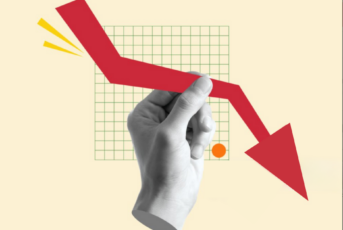Forgetting important dates such as an anniversary or deadlines can get you in hot water with your partner or your boss. When it comes to dividend paying stocks, there are three important dates that no one should forget. For some, cash dividends are a crucial for their retirement income; for others, it’s just another source of return on the stock. Stock dividends have key dates that investors must understand otherwise they will miss out on payments. The three dates are the date of declaration, date of record, and date of payment.
1) Date of Declaration
The date of declaration is when the company’s board of directors announces their intention to pay a cash dividend. Once declared, the company incurs a liability on their books to reflect the proposed dividend to shareholders. At the same meeting, the board of directors also announces the date of record and date of payment. Companies pay either Qualified or Non-qualified dividends when they have excess cash on their books that cannot be reinvested into the business.
2) Date of Record (and ex-dividend date)
The date of record is how the company determines which shareholders are entitled to the dividend. A company maintains a record of all their shareholders, unless the shares are held in street-name. Street-name means you own your shares through a brokerage account like Charles Schwab or Fidelity. In such cases, the company pays the broker and the broker deposits the cash dividend in your account. The ex-dividend date is two days before the date of record. Investors who own the stock before the ex-dividend date are entitled to the dividend whereas investors who buy the stock on or after the ex-dividend date will not receive the dividend. As a result, the value of the stock declines on the ex-dividend date because the stock trades without the right to the dividend and the value of the company decreases because the dividend no longer belongs to the company.
3) Date of Payment.
This is the last date to remember for dividends because the date of payment is when you actually receives the cash dividend. The dividend will either be paid to you personally or deposited into your brokerage account if you have your stock in street name.
Closing Thoughts
Sometimes companies pay large special dividends (such as Microsoft in 2004) because they have excess cash on their books and they want to distribute it to shareholders. You could potentially miss out on a cash dividend if you do not pay attention to the three key dates mentioned above. Most importantly, don’t buy a stock just for its dividend. Dividend paying companies are usually mature companies that can no longer reinvest their profits into the business to earn a sufficient return required by their shareholders. You should have a diversified portfolio that includes both dividend and growth oriented companies.
Looking for an independent fiduciary financial advisor who can advise you on investments, retirement, real estate, alternative assets, and taxes? Contact ACap Advisors & Accountants to schedule a free initial consultation. Our clients include individuals, small businesses, entrepreneurs, and anyone serious about saving and investing for their future.









